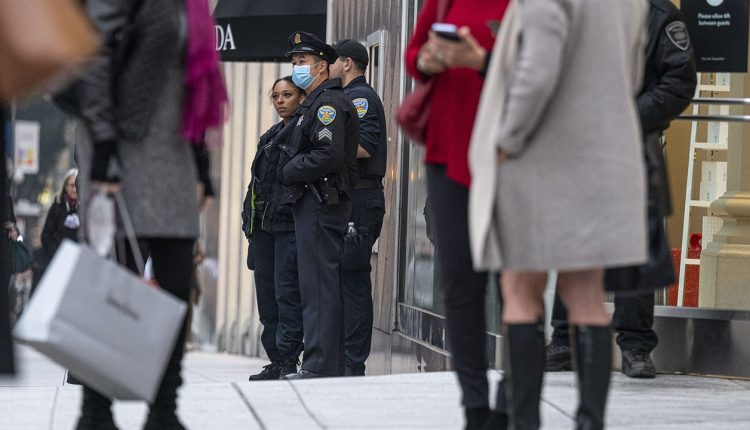Retails across the nation faced a “dramatic jump in financial losses” from unprecedented levels of organized retail crime in 2022, according to the National Retail Federation (NRF).
Last year, total losses tied to theft amounted to $112.1 billion, according to data from the 2023 National Retail Security Survey. That is up from $93.9 billion in losses in 2021 and $90.8 billion in 2020.
Retailers within metros including Los Angeles, San Francisco and Oakland as well as Houston, New York and Seattle were hit the hardest last year.
TARGET CEO WARNS RISING CRIME, RETAIL THEFT WILL HIT PROFITS
The average shrink rate in fiscal year 2022 increased to 1.6%, up from 1.4% in 2021, according to the survey. However, percentages of shrink – the loss of inventory due to circumstances including theft – can vary per retail sector, the NRF said. Internal and external theft accounted for 65% of retailers shrink, which is on par with previous years, according to the data.
The data comes after a growing number of retail executives bemoaned that theft, growing in both scope and complexity, is taking a large chunk out of their profits. Earlier this year, Target said it expected to face take a more than $500 million hit in profits this year due to brazen retail theft.
Just last month, Dollar General Chief Financial Officer Kelly Dilts told investors that the discount retailer expects to incur an additional $100 million loss from theft.
NRF Vice President for Asset Protection and Retail Operations David Johnston warned in a statement that the situation is not only getting more dire but continually threatening the safety of the workers and shoppers.
“Retailers are seeing unprecedented levels of theft coupled with rampant crime in their stores, and the situation is only becoming more dire,” Johnston said.
CRIME-FIGHTING FOG HITS SHOPLIFTERS AS RETAIL THEFT SPIRALS OUT OF CONTROL
However, “far beyond the financial impact of these crimes, the violence and concerns over safety continue to be the priority for all retailers, regardless of size or category,” he added.
Retailers have echoed Johnston’s concerns. For instance, more than 60% of retailers reported more violence and aggression from perpetrators compared to a year ago, the survey results showed.
The industry has been ramping up measures to combat these crimes while working with legislators, law enforcement and retail industry partners to advocate for public policy solutions. However, it has not been enough.
Retailers are still being forced to reduce operating hours, alter product availability, lock up shelves and even shut down certain stores as a result.
Walmart has made it clear this is more than just an industry problem, with CEO Doug McMillon saying last month that they need more help from local governments.
“We do think that in some jurisdictions here in the U.S., there needs to be action taken to help protect people from crime, including theft,” McMillon told investors.
Best Buy also said in an earnings report in August that it is altering the way it’s displaying products, which “allows for a much better merchandising experience for products that we have deemed more at risk for shrink and have decided to hold inventory in a more secure location off the sales floor.”
On Tuesday, Target announced it would be shuttering nine locations even after CEO Brian Cornell announced earlier this year that the company would “continue to do everything in our power to keep our doors open” given that closures would hurt communities that rely on them.
ORGANIZED RETAIL THEFT NEEDS STRICTER PENALTIES, US CHAMBER OF COMMERCE TELLS CONGRESS
The company said Tuesday that despite its efforts to thwart crime, it continues “to face fundamental challenges to operating these stores safely and successfully.”
The NRF agreed that policy reform is needed to help curtain the problem, arguing that initiatives such as raising the felony theft threshold, which is the amount that the must be stolen in order to be considered a felony, as well as removing or eliminating cash bail “may have unintended consequences for retail theft.”
The group was a major leader for getting the Integrity, Notification, and Fairness in Online Retail Marketplaces for Consumers Act passed in December. The law, which took effect this summer,designed to make it more difficult for crime groups to sell illicit goods through online marketplaces like Amazon or Facebook.
Read the full article here

